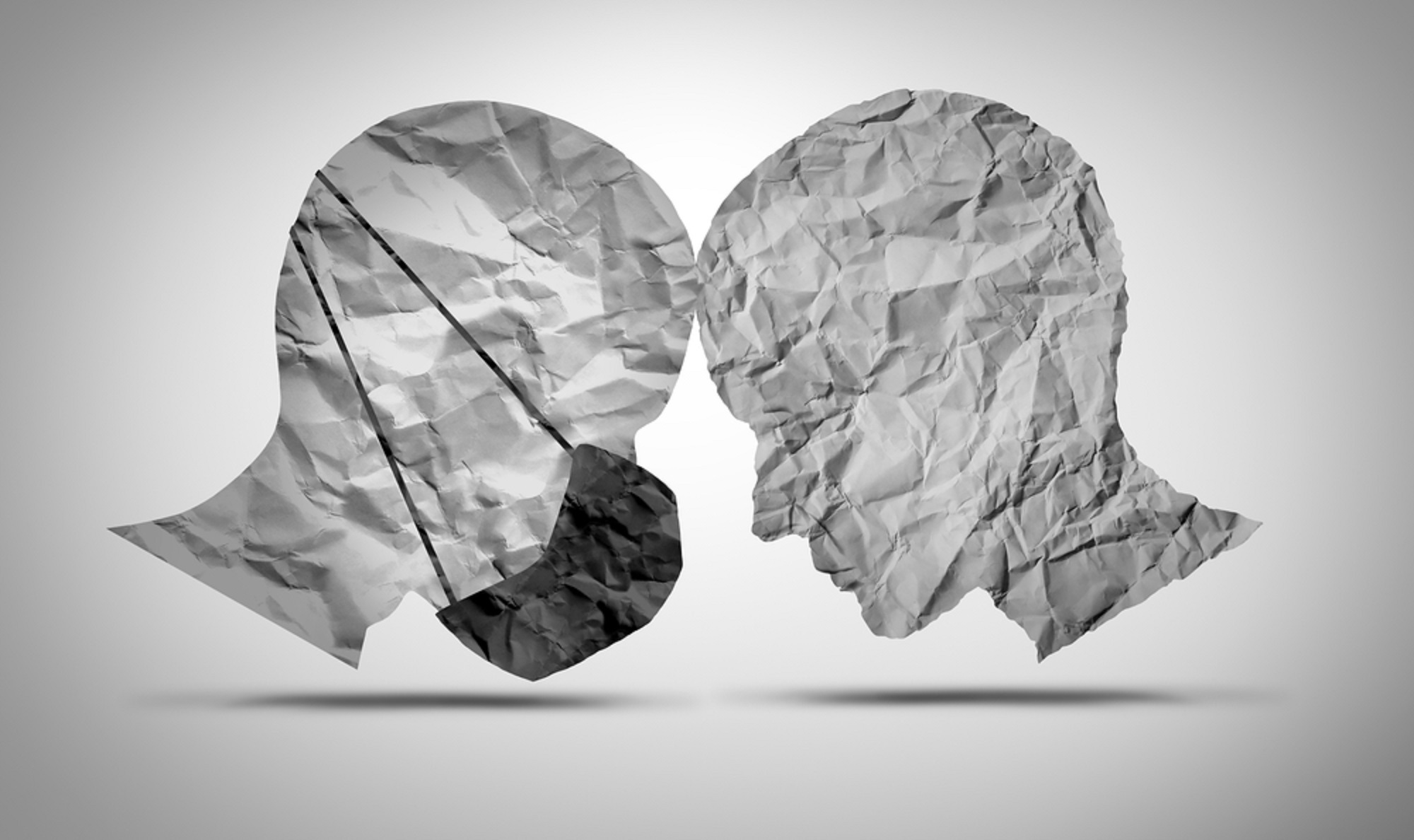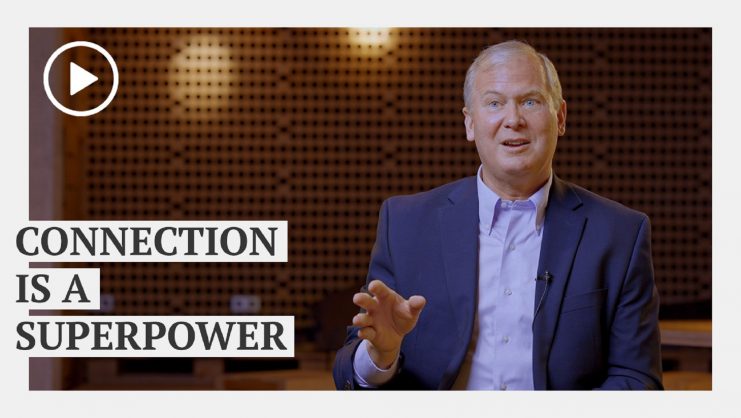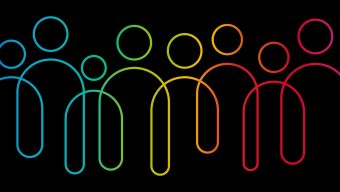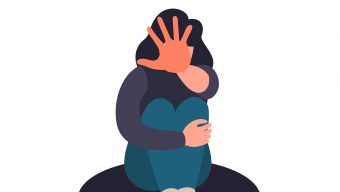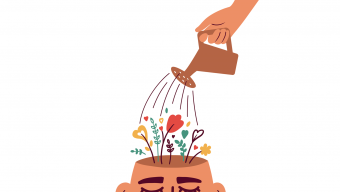Face masks became mandatory in public and private spaces in Spain in May 2020 while the country was still in complete lockdown. The quarantine ended in June 2020, but many restrictions were maintained, among them the requirement to always wear a mask. For more than a year, Spaniards have had to cover their faces everywhere except in their own homes or when eating at a restaurant.
This meant that those faces we got to see were of people with whom we were already familiar —extended family, friends, and work colleagues— and only if we chose to share a meal or a drink. Otherwise, the restrictions obligated us to always remain masked and this meant that we never had the chance to see the faces of strangers in the streets or in the shops. Thus, while we have all made new acquaintances during this past year, we have not necessarily known them fully. For, if we got together with them in person, we mostly saw only their eyes and body shapes and, if we rendezvoused online, it was with flat, unmasked faces through a screen.
In Europe, and particularly in Spain, another unfortunate side effect of the mask mandate is that the two-kiss greeting is, more or less, gone. The custom to greet people with two kisses on the cheeks has been replaced with all kinds of unusual-until-last-year new forms of salutations – the elbow or fist bump, the wave, the awkward shuffle.
After more than a year, the Spanish government has finally established that masks are no longer mandatory in outdoor spaces provided that safety distance can be maintained. This new authorization results in different opinions and reactions because the implications of hiding our mouth region vary for diverse populations. Thus, there have been a range of psychological effects in lifting the mask mandate – from the positive emotions of relief associated with the return to a more usual mode of communication and autonomy to the negative feelings related to fear of (re)infection and a diminished sense of our ability to make a tangible effort to fend off the virus, as individuals acting collectively.
According to some mental health professionals, individuals who experience anxiety and depression feel that covering their faces exacerbates their symptoms. There are a number of groups in our society who suffered direct implications from the mandate to wear a mask. For example, the deaf community communicates with more difficulty now that they can no longer read lips, and individuals who tend to be stereotyped based on their ethnicity, mainly in the United States, are worried about looking “more threatening” when they wear a mask because covering the face is a strategy used by criminals to avoid identification. To these groups, the end of the mask mandate can be a relief.
Indeed, it is a safe assumption that the large majority of the population, in general and regardless of their willingness, finds wearing a mask physically uncomfortable. A female interviewee of the Washington Post compares this accessory with other cumbersome garments: “That feeling of ripping off your bra, or taking off your heels—it’s the same type of feeling.” Similarly, people who wear the close fitting N95 respirators for extended periods of time, for example health professionals, report physical discomforts such as headaches and face irritation.
Face coverings are not only uncomfortable, however. They also reduce our ability to display and identify emotions. In various experiments, participants who were shown faces with and without surgical masks had more trouble correctly identifying the emotions displayed by the face that was covered – and this impairment has important social repercussions. For example, the inability to recognize happiness in another person reduces the likelihood of generating trust by mirroring that same emotion.
Furthermore, according to the uncertainty reduction theory of communication, when two people, particularly strangers, interact (and speak), they seek to reduce what is unknown between them by gathering information from their interaction. Being able to predict and understand other people’s behaviors makes us feel more comfortable and allows us to develop relationships with them. Additionally, it is not just words that provide clues to the emotional state of the person and allow us to reduce uncertainty, but the full face and all its topographical information can help us gather information about the other person and find points of connection. The mask, therefore, can lead to less pleasant interactions, conversations that make us feel anxious and inadequate, which in turn can result in shorter and less personal connections with others. It is also possible, of course, that exchanges have become shorter because we fear being in close contact – just 15 minutes within 1.5 meters – of someone who might be infected with COVID.
People have resorted to different strategies to compensate for muffled voices and hidden facial gestures – ranging from using mobile apps that transcribe speech to lowering the mask while standing further apart or, unfortunately, avoiding verbal exchanges altogether. And some of us have begun to emphasize tone, body language, and even forehead muscles to convey meaning.
Even if we make a conscious effort to treat everyone alike, divergent mask practices can strain our existing personal relationships.
Women in Islamic countries have long understood how non-verbal cues affect communication. The BBC interviewed women who confirmed they can perfectly express themselves while veiled thanks to putting emphasis on the inflection of their voices, their eyes, and posture. Furthermore, studies suggest that we infer emotions, not just from body cues, but also from the environment. A recent experiment that tracked the inference of emotions in real time showed that participants were able to correctly gauge the feelings of a blurred person in a moving image, from context alone, suggesting that we do indeed gather information from sources other than the face alone.
As many regions and countries end the requirement to wear a mask outdoors, we can resort to our old mode of communication, which is simply more familiar and this normalcy alone causes positive emotions. Some scholars suggest that the obligation to cover our faces hinders our psychological need for autonomy. According to Self-Determination Theory, wellbeing and motivation occur when the three basic psychological needs of autonomy, competence, and relatedness are satisfied. Therefore, removing the requirement to cover our faces increases psychological wellbeing and provides a soothing feeling that the pandemic is a thing of the past.
It is important to note, however, this feeling of relief upon removing the mask mandate is not universal and that there is something about the collective use of masks that makes some of us feel well and safe. According to psychologist Silvia Álava, the end of the mandate to wear a mask can lead to what Spanish mental health professionals call “el síndrome de la cara vacía” which means “empty face syndrome” to describe the symptoms of people who may experience stress at being without a mask while in the presence of others. A UK study during the early stages of the pandemic suggests that last year, adherence to government COVID regulations regarding covering the face was associated with higher mental health and less anxiety compared to non-compliance, even when controlling for other variables. Similarly, surveys comparing Chinese and Polish citizens found that anxiety, depression, and stress levels were lower in the former where 96.8% of the population wears a mask compared to the latter where only 30% of the population does.
Self Determination Theory can also explain why some people are apprehensive about the end of mask mandates. While the psychological need for autonomy can be exercised more freely, our feeling of competence, the ability to achieve that which we want to achieve, may begin to be compromised. Some people wear the mask because it gives them a sense that they can have an impact in stopping the spread of the virus and can actually feel a sense of control from the reassurance that others are also wearing a mask. As fewer people use masks, our perception of competence diminishes, as does our sense of relatedness – and this may create a situation in which we unconsciously favor people who choose to do the same as us and we even disesteem those who act differently. This polarization is more prominent in certain countries. For example, an experiment conducted in the United States had mask wearers and non-mask wearers play a series of Prisoner’s Dilemma games and the results suggest that, indeed, we tend to cooperate more with people who behave like us. Therefore, the permission to choose whether or not to cover our faces outdoors may jeopardize two of our basic psychological needs for wellbeing.
The need for relatedness deserves special attention. Even if we make a conscious effort to treat everyone alike, divergent mask practices can strain our existing personal relationships. Most likely, we all have friends and family on both sides of the mask-wearing spectrum. Intentionally or unintentionally, nowadays we tend to conduct our social life around people who observe similar mask norms.
Understanding the psychology of mask wearing choices is the first step in balancing any adverse effects – and, of course, speaking about these issues helps spread awareness. Here are a few recommendations which may be useful to resolve some of the situations mentioned above:
- During short encounters with strangers in public places, be mindful of conversational mask dynamics. If you are feeling awkward, remember the other person may be feeling the same way. If you do not understand exactly what the other person says, ask for clarification, and maybe even remark, lightheartedly, that the mask makes it difficult to converse.
- Study your own body language to become a better communicator. It is not necessary to go as far as practicing gestures in front of the mirror, although research suggests that theater training promotes empathy. Just keep track of non-verbal cues that are particularly effective in getting your point across in different situations so you can use them later.
- Question your own biases. If you find yourself trying to guess what the other person looks like under the mask, ask yourself why. Maybe it is time we take other people at face value.
- Psychologists suggest taking small steps to mitigate the effects of the empty face syndrome. If you are worried about removing your mask in outdoor spaces, try doing so, first, in deserted areas and, gradually, in more populated places until you get used to the feeling. Additionally, if you feel your psychological need for competence is compromised, think about other safety measures over which you have control (vaccines, hand washing, physical distance, etc.). Nevertheless, if your symptoms worsen, do not hesitate to get professional help because there may be an underlying condition.
- Practice empathy and respect. It is easy to take offense when dissimilar mask practices between friends sabotage our social lives. Being mindful about the many valid reasons on both sides of the issue eases unpleasant emotions. The feelings of the other person regarding mask choices are just as valid as your feelings, even if they are opposite. Respect one another and find ways to keep the relationship alive, until you can reconcile your mask etiquette (text messaging, telephone and videoconference conversations, nice gestures, etc.)
The reasons behind people’s choices regarding face masks are varied and complex and the opportunity to decide freely whether or not to mask presents its own additional complications. For some, it means decreased anxiety, fewer communication hassles, a feeling of normality, and fulfillment of their need for autonomy. But for others, the opportunity to go without a mask translates into increased fear of contagion and a feeling of lack of control. The psychology of people’s attitudes towards mask-wearing is complicated and may even be unknown to them. Understanding, kindness, and respect can go a long way while we navigate uncertain moments.
© IE Insights.



